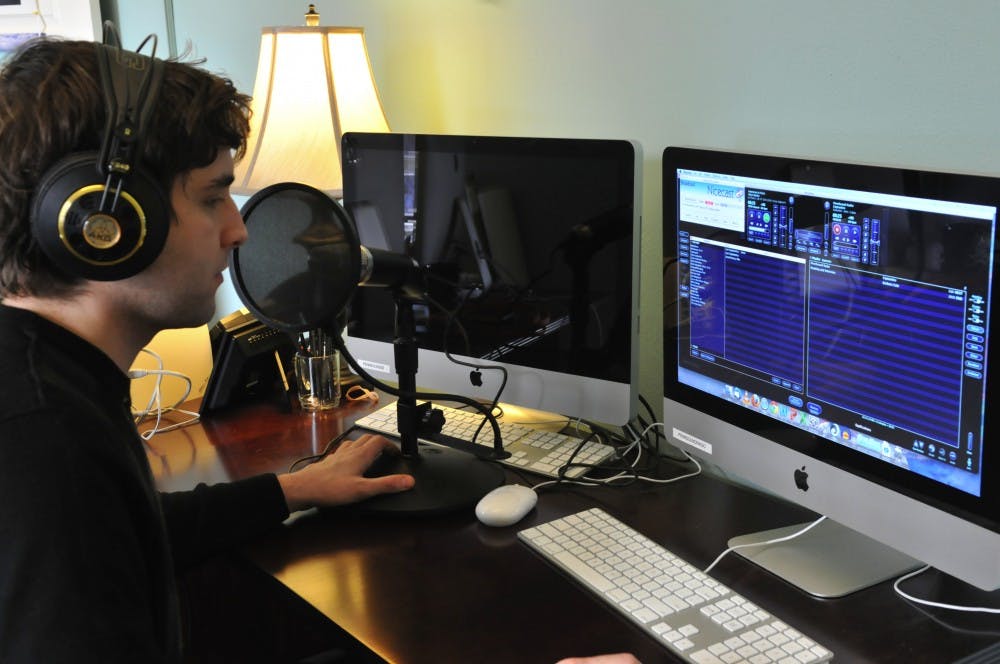
Just in time for winter vacation, PennSound gave Jay-Z and Ke$ha a break from blasting in the ears of youth everywhere and slowly let Edgar Allan Poe and Guillaume Apollinaire take over.
On Dec. 16, the PennSound poetry archive launched PennSound Radio, a 24-hour stream of readings and conversations accessible through both iTunes and a smartphone. 2008 College graduate Stephen McLaughlin and 2010 College graduate Jeffrey Boruszak co-founded PennSound Radio and act as director and associate director, respectively.
When they attended Penn, the two English majors shared a passion for poetry and worked closely with English professor and poet Charles Bernstein and English professor and director of the Center for Programs in Contemporary Writing Al Filreis, who co-founded the general PennSound program.
Since its launch in 2005, the PennSound website has grown to “by far the largest archive of recorded poetry in the world,” Filreis said.
In light of this expansion, the creation of an associated radio station was the next natural step for PennSound, he added.
“A decade of work has gone into the realization of PennSound,” Bernstein said. “Web radio is something we’ve always wanted to do, but we haven’t had the infrastructure to make it happen until now.”
Listening to PennSound Radio and downloading files off the PennSound website is free for noncommercial use, he added.
To operate PennSound Radio on a daily basis, McLaughlin creates a mix of poetry selections and allows it to run on shuffle mode based on the founders’ favorites.
“The system pulls records from the archives and goes on for 24 hours,” Filreis said. “It’s basically a radio station with a huge collection of records.”
The radio station’s schedule not only includes readings by poets, but also features interviews with poets from across the country.
Christopher Martin, PennSound Radio’s technical director, explained that an iMac in his fourth-floor office at 38th and Walnut streets runs the radio station without the need of a DJ.
“We update and constantly add new programming to it, but we could walk away from it and theoretically it would continue to broadcast forever,” he said.
In the future, McLaughlin and Boruszak are hoping to further develop the radio station by airing more live content.
“I have a small recording studio set up in my basement,” McLaughlin said. “I set up the system such that I can flip a switch and go on live from anywhere … We have the capability in place, but we haven’t done it yet.”
Filreis is hopeful that the idea behind PennSound Radio will encourage other colleges to follow suit with the creation of similar programs.
“If poetry can be associated with sound, people will be more likely to associate it with music, so the impact is huge,” Filreis said. “I think PennSound Radio is a model of what universities should be doing as they have a ton of recorded content … Why shouldn’t we make it available?”
The Daily Pennsylvanian is an independent, student-run newspaper. Please consider making a donation to support the coverage that shapes the University. Your generosity ensures a future of strong journalism at Penn.
DonatePlease note All comments are eligible for publication in The Daily Pennsylvanian.








